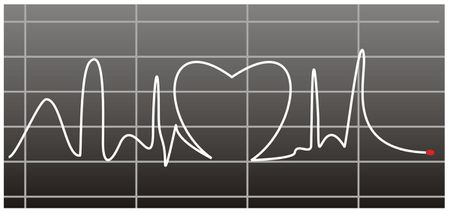Atrial fibrillation is a condition of the heart that causes an unusually fast heart rate. It's the most common heart rhythm problem and can affect anyone, although it's mostly common in people over 75 years old. Usually, the human heart beats at a rate of between 60 and 100 beats per minute when a person is resting. In atrial fibrillation, however, the beat rate shoots to over 140 beats per minute.
Causes of atrial fibrillation
How the heart works
The heart is divided into four sections, two at the top called atria and two at the bottom called ventricles. The heart is basically a muscle and contracts and relaxes to push the blood through the four sections. In the right atrium, there's the sinoatrial node which sends impulses to the atrioventricular node and together, they regulate the heart's beat. This is called your pulse and you can feel it in your neck or in your wrist.
Abnormal heart beat
Sometimes, for reasons which scientists are still studying, these impulses go haywire and the atria contract randomly causing an irregular heartbeat. Since this erratic heartbeat doesn't allow the heart to relax properly between contractions, it may cause the patient to feel some symptoms, although many people are not aware of anything until the doctor takes their pulse. Those who do suffer from symptoms may feel breathless, dizzy or suffer chest pains. They may be aware of a flutter in their heart or of palpitations.
Atrial fibrillation causes
It's still unknown why some people are susceptible to heart fibrillation but likelihood increases if you have high blood pressure, atherosclerosis or a disease of the heart muscle or valves such as cardiomyopathy or pericarditis. Other medical conditions, especially those associated with the lungs such as pneumonia or a pulmonary embolism may also lead to atrial arrhythmia. Binge drinking, taking drugs such as cocaine and heavy smoking can cause heart rhythm problems.
Diagnosis
If you notice a sudden change in your heart rhythm, visit your doctor who will check your pulse. They may send you for an ECG to check for atrial fibrillation.This is a simple test where electrodes are placed on your chest, arms and legs and the machine then produces a piece of paper showing how your heart is working. From this, your doctor can make their diagnosis. Your doctor may also require further tests.
Treatment
The treatment will depend on the type of fibrillation and its cause. Your doctor will decide whether you need medication or a referral to a cardiologist (heart specialist) for more tests and treatment.
Last word
If you notice an irregularity in your pulse or palpitations, it's best to check with your doctor.




